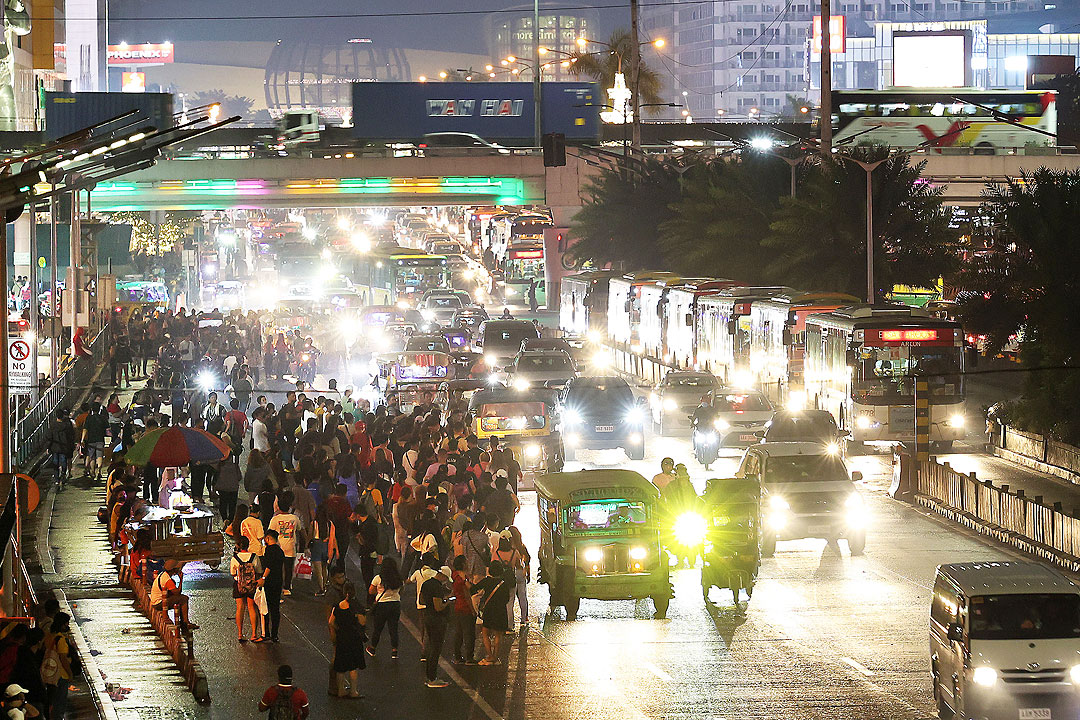Commuters bear brunt of gov’t failure to solve transport crisis — expert

TRANSPORTATION advocates bewailed the plight of commuters during transport strikes and blamed “faulty and uncoordinated government policy” that has done little to get the nation out of the mobility crisis that has plagued the country since 2019.
That reality kicks in today as jeepney drivers wage a strike against the Public Utility Vehicle Modernization Program (PUVMP), which effectively phases out traditional jeepneys; and the Metropolitan Manila Development Authority (MMDA) imposes its ban on light vehicles like e-bikes from traversing major thoroughfares.
“Unfortunately, ordinary Filipino commuters do not have a choice but to endure the suffering imposed on them by faulty and uncoordinated government policy. Despite all the crippling policies, people still need to travel to work, to school,” transport advocacy group AltMobility PH Director Ira F. Cruz told BusinessWorld in a Viber message.
He said the Philippines has been in a mobility crisis since 2019. “That year, we saw commuters walking on train tracks and people climbing through windows just to get a seat on a bus,” said Mr. Cruz. “The government wasted the unique opportunity during the pandemic to introduce much-needed improvement in transportation.”
Last week, major transport groups MANIBELA and PISTON announced a strike on April 15 to protest President Ferdinand R. Marcos, Jr.’s refusal to suspend or delay the April 30 deadline for franchise consolidation under the PUVMP.
Transportation expert Rene S. Santiago told BusinessWorld in a separate Viber message that “when there is a jeepney strike, restrictions on other vehicles like [light vehicles] and cars should be lifted” to prevent further transport woes for commuters.
British Chamber of Commerce Philippines (BCCP) Executive Director and Trustee Christopher James Nelson told BusinessWorld in a phone interview that businesses are not worried about the transport strike as they have switched to other forms of working, such as hybrid set-ups and adjusted work days.
“It’s not a general withdrawal of transport, but there are impacts. The PUVMP [and its effects] are not significant issue[s] to business groups,” he said.
Commuter-centered group PARA – Advocates for Inclusive Transportation Convenor Nanoy Rafael told BusinessWorld via Viber that the PUVMP, banning of light vehicles, and closure of the Philippine National Railway (PNR) are “not just results of simple state neglect but of the wholesale abandonment of the government in public transport as a service.”
“While there are rail projects, all of these are being funded through loans from foreign multilateral financial institutions like the ADB (Asian Development Bank). Fares will become more expensive, and the Filipino people will bear the burden of onerous loans with unfair structural adjustments attached,” Mr. Rafael said.
Meanwhile, Mr. Cruz said the country’s transport system “unnecessarily adds to household expense on transportation due to delays in the implementation of Automated Fare Collection System (AFCS) — a system that not only offers cashless payment but rationalizes fares.”
He cited a study from the Japan International Cooperation Agency (JICA), which said that traffic congestion in the National Capital Region a day amounts to the loss of at least P3.5 billion or P1.27 trillion annually.
Last week, Philippine President Ferdinand R. Marcos, Jr. addressed the traffic woes of Filipinos through a town hall meeting with various agencies.
He promised the government’s ramped-up efforts to finish railway projects that can help ease the traffic congestion in the capital region, dubbed as the world’s worst by the TomTom Traffic Index in January.
The President said ongoing railway projects, including the proposed Metro Manila Subway, are 41% done. — Chloe Mari A. Hufana
